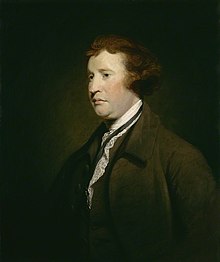

The terms 'liberal' and 'conservative' are bandied about with such gleeful abandon in US political life that they've largely been gutted of meaning. On the political right, the term 'liberal' has since the Clinton administration been employed as a slur, often prefaced by adjectives ranging from 'godless' to 'tax-and-spent' to 'freedom-hating'. Meanwhile, on the leftward end of the spectrum, many erstwhile 'liberals' now eschew the term in favour of 'progressive', while deploying the term 'conservative' in adjectival form accompanied by nouns such as 'theocrat', 'windbag', 'nutjob' and so on.
Given the ubiquitous nature of these terms (and their seemingly arbitrary use), it's worth consulting a dictionary. The term 'conservative' derives from the Latin conservare, which means 'to retain'. Wikipedia defines conservatism as "a political and social philosophy that promotes retaining traditional social institutions" whose advocates tend to either emphasize stability and continuity or oppose modernism and seek a return to 'the way things were'. Liberalism, on the other hand, is defined as "a political ideology or worldview founded on the ideas of liberty and equality" while progressivism is defined as "a political philosophy advocating or favouring social, political and economic reform."
 |
| This guy would have loved the Romney/Ryan slogan. |
While it's debatable how accurately these views characterize the leaders of the US Republican and Democratic Parties respectively, there's no denying than from a branding perspective, these characterizations are bang on. At last week's Republican National Convention in Tampa, the Romney/Ryan team unveiled its official campaign slogan, 'We Built It'. The open-endedness and punchy trisyllabic format of this now-viral catchphrase invariably draws comparisons to Obama's 2008 campaign slogan, 'Yes We Can'. While on the surface these catchphrases are essentially meaningless, these superficially similar campaign slogans both speak volumes to promises espoused by their respective candidates - and the political ideologies they represent.
While the Obama presidency's 'liberalism' or 'progressivism' remains a matter for debate, there's no denying that his 2008 election campaign was rooted in the dictionary definition of progressivism. Not liberalism, but progressivism. (Obama's stance on social issues, particularly LGBT rights, does however fit perfectly with the aforementioned definition of 'liberalism'.) The Obama campaign was all about change, and the catchphrase 'Yes We Can' is perhaps the perfect linguistic distillation of the progressive ethos. It's positive (yes); it's inclusive (we) and it highlights potential (can). It's a slogan that appealed to a belief in a positive future, a future alive with possibility. Nothing short of a call-to-arms for progressives.
The Romney/Ryan slogan, by contrast, is tautologically, even classically conservative. Not conservative in the modern-day neo-conservative sense or even really in a socially conservative or Tea Party sense. Conservative in the original sense as espoused by the likes of Edmund Burke in the aftermath of the French Revolution. Like the Obama slogan, it the inclusive 'We'. But thereon in it immediately hearkens to the past with the past-tense 'Built'. The nebulous 'It' is the word that has caused much consternation in cyberspace. While Romney and Ryan's business-fixated rhetoric makes the slogan's intended meaning clear (Yes, you the average American voter built this country, not that nasty narcissistic big government that wants to steal your lunch money and take credit for your homework!), some have also suggested that 'it' could refer to a national debt that looks to hit the $16.4 trillion borrowing limit by the end of this year.
 |
| Is that the Nike swoosh under the 'did'? |
Ambiguity notwithstanding, though, the 'We Built It' slogan is arguably the most perfect conservative slogan ever devised. It's a slogan that says, "We've built these institutions, and we should keep them in place." Whether true-blue Burkean conservatism will register with the American voting public remains to be seen, but if nothing else it makes for a refreshing departure from the amphetamine-crazed neo-Conservatism of Dick Cheney and Donald Rumsfeld or the cartoonish Tea Party conservatism espoused by the likes of Donald Trump and Sarah Palin - neither of which fit with the encyclopedic definition of the term. As for the Obama team, progressivism continues to define Democratic sloganeering with the party adopting one-word catchphrase 'Forward' for 2012. 'Forward' is a tad more muscular and perhaps even militant sounding than 'Yes We Can', but it's still textbook progressivism.
Which ideology will win the day? While it's still too early to say, the recent appearance of a campaign banner with the curiously overemphatic 'We Did Build It' (with the 'did' underlined no less) suggests that the Romney team is feeling a tad desperate. "No really, we DID build it!! Honest!" I guess we'll see on November 6.
And then there's the issue of the band Jefferson Starship. While the veteran San Francisco psychedelic rock group has yet to weigh in on the issue of the Romney/Ryan campaign slogan, one can't help but wonder if they lifted it from the group's iconic 1985 hit. Then again, at the time when We Built This City hit the airwaves, the group existed only in the form of the Mickey Thomas-led spinoff simply called 'Starship'. Which is fitting given that the current crop of Republicans are not particularly, er, Jeffersonian (sorry).
No comments:
Post a Comment